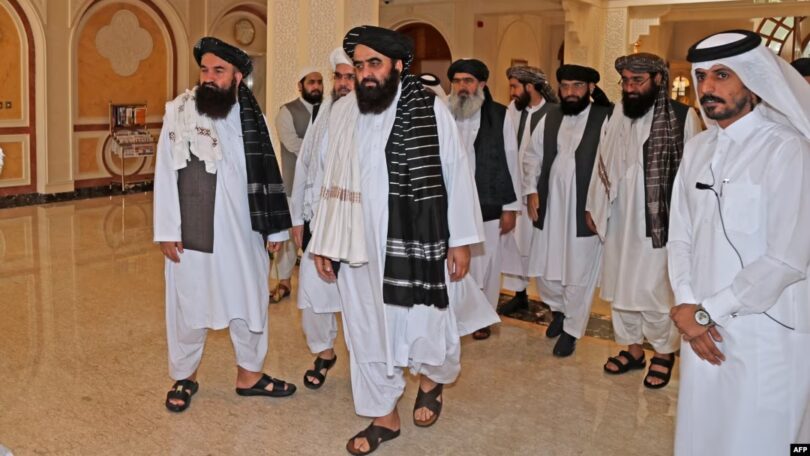According to the media, the Taliban interim authorities will be absent from UN-led talks scheduled to be held in Doha, regarding dealing with Afghan rulers and pressing them to ease a ban on women’s employment and girls’ education in the cleric-ruled Afghanistan. As said, the envoys from the United States, China, and Russia as well as major European nations and key neighbours including Pakistan are among the delegates that will join the two-day huddle in Qatar that hosted months-long talks between the United States and the Taliban in the past. The UN Secretary-General Antonio Guterres will address the session and will urge the global community to engage with the Taliban government and pave the for the preservation of basic human rights in the South Asian nation. Meanwhile, the question of recognition of the Taliban administration loomed large ahead of the global meet-up over the issue and proposed methodology to tackle with the determined rulers of the conflict-ridden country.
The current geopolitical landscape and internal state of affairs of Taliban-ruled Afghanistan portray a gloomy picture and prompted serious reservations in the global community. The historic peaceful troops’ withdrawal by the US-led foreign alliance could not settle down the Afghanistan issue and failed to realize peace in the war-hit nation after the Taliban seized control of the country in August 2021. The Taliban-ruled Afghanistan not only confronts multiple domestic and external issues but poses serious security challenges to its neighbors and the global community at large. Numerous transnational terrorist groups are amassed in the country and the Taliban regime lacks both capacities and resolve to combat these grave challenges. Recently, the Taliban authorities imposed a ban on women’s employment, girls’ education, and women’s travel without a male escort which caused grave concerns among the global community, while no inclusion of the Afghan republicans and other opposition parties in the interim set up has kicked off a fresh insurgency in some parts of the country. Historically, there had been recurrent calls from the United Nations and the global community urging the Afghan interim authorities to uphold its obligations in respect of the Doha agreements and the global responsibility regarding the protection of human and women’s rights, preservation of civil liberties, inclusiveness and no tolerance for terrorism so the decades-long violence and anarchy comes to calm, and the country becomes a hub of economic activity instead of being a sanctuary for the transnational terrorist groups that threaten the regional and global peace.
Realistically, the foreign troops’ withdrawal could not prove to be a lasting solution to the decades-long violence in Afghanistan, as it throned a contesting group and opened up the window for a fresh conflict in the country. So far, the Taliban are determined to implement their agenda and rule the nation solely, while Northern Alliance, Islamic State, and other militant groups are aggressively working to topple the Taliban rule and instate their own government in the country. Meanwhile, Afghan women and civil society groups are staging peaceful protests in favor of their fundamental rights and against the global recognition of the Taliban government. Apparently, the Taliban regime has created problems for itself through the creation of issues out of the nonissues. The Taliban authorities preferred to grasp their political agenda instead of restoring peace, delivering to the public, getting global recognition, and consolidating their gains in the country, thus the astigmatism of the leadership again rendered the country a terrorist hot spot and security risk for the global community.
Presently, an UN-led global huddle has been arranged to deliberate on the Afghan issue and deal with the Taliban rulers, which will surely provide an opportunity for the Taliban government to settle its issues and become a part of the global community. However, Kabul’s failure to comprehend the global aspirations would cause serious problems for the people and the government of Afghanistan in the future. Because economically fragile and politically unstable Afghanistan is purely dependent on foreign aid, while further diplomatic isolation and no foreign assistance would cause severe economic and humanitarian crises in the country. Therefore, the Afghan interim rulers must pause their ego and think for the people of Afghanistan who persistently suffered over the past decades and deserve some peace and prosperity at this point in time.







